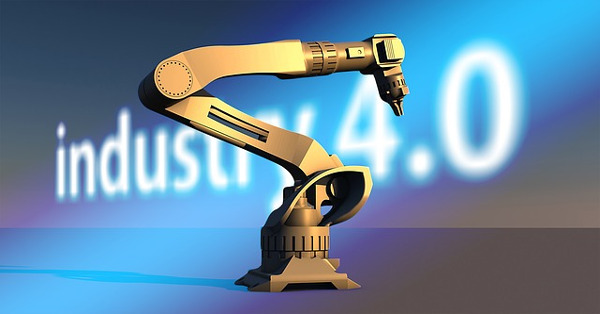Remaining competitive and profitable requires constant improvements in productivity, customer service, quality, regulatory compliance, and flexibility. Industry 4.0 promises to deliver these improvements.
Often, however, there is too much hype and/or misunderstanding surrounding Industry 4.0. It’s time for some clarity.
The Industrial Revolutions
Let’s start at the beginning: Industry 4.0 is another way of describing the Fourth Industrial Revolution:
- First Industrial Revolution – introduction of mechanical production, typically powered by steam engines
- Second Industrial Revolution – introduction of technology powered by new sources of energy, particularly electricity but also oil and gas
- Third Industrial Revolution – introduction of digital technologies including everything from the early mainframe computers of the 1950s to more modern automation technologies and internet-based communication and monitoring solutions
- Fourth Industrial Revolution – Industry 4.0
Before going into a more detailed look at Industry 4.0, it is important to understand the first three industrial “revolutions” are more accurately described (in terms of time) as evolutions. They did, of course, revolutionise manufacturing and industry, but each era lasted decades and built on the one before it.
The Third Industrial Revolution, for example, began in the 1950s. Only now, 65+ years later, are we transitioning to the Fourth Industrial Revolution.
Therefore, we can safely say Industry 4.0 will be evolutionary, so will happen over many years rather than a short period of time.
It will revolutionise manufacturing and industry, though, changing the world just as much (if not more) than the three Industrial Revolutions that have gone before it.
What We Can Expect from Industry 4.0
From a technology perspective, Industry 4.0 will bring deeper machine and process integration to your production lines. It also involves enhanced data collection which will lead to improved decision-making. Much of this decision-making will be automated. In fact, automation is a crucial part of Industry 4.0. Other technologies that will be important too include robotics, machine learning, and AI.
This doesn’t fully describe what we should expect from Industry 4.0, however, as the technologies above are about the practical side of manufacturing.
The impact of Industry 4.0 will go much further than this to change and improve your overall business. We can use a simple example of a technology that exists today. In the past, managing and improving the performance of production lines was a post-event task, i.e. you checked data after the batch or shift to get an understanding of results.
With Industry 4.0 technologies, however, you can establish a baseline for performance, with deviations from that baseline being monitored and identified in real-time. Obviously, this means you can address performance issues immediately, mitigating their impact.
Let’s take this a stage further: Industry 4.0 technologies will make it possible to have an AI system in place that monitors the performance baseline of your production line, taking automatic corrective action when required.
This means, however, taking a completely different approach to managing performance than the system most manufacturing facilities currently use.
So, Industry 4.0 is About Digitalisation and Organisational Change
Another example of the impact of Industry 4.0 on your wider business is meeting customer demand. Currently, this involves manual decision making (i.e. human decision making) on everything from analysing sales data to purchasing raw materials to authorising overtime so you can increase manufacturing capacity.
With Industry 4.0 technologies, this could all be integrated, with every point on the supply chain feeding data back to your production line. This then facilitates automated decision making as well as the automatic implementation of those decisions to meet expected demand, whether that demand means scaling up or scaling down production.
This then has knock-on effects. For example, a system like this could identify downturns in demand where it would schedule machine maintenance work, preventing future breakdowns as well as minimising the need for planned downtime when demand is high.
Planning for the Future
As you can see, the potential of Industry 4.0 is fascinating and exciting, plus it will dramatically improve the productivity and efficiency of manufacturing facilities.
However, we must not think of Industry 4.0 as a technology issue. It should instead involve a wider business digitalisation strategy that is led, planned, and implemented by top management. You can then achieve significant and durable benefits.





